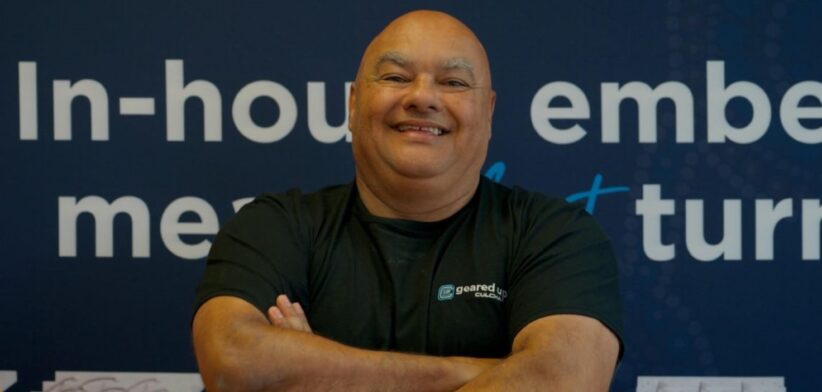By Paul Dodd
An Indigenous business needs to be able to stand alone, learning from all parts of its industry, but confident in its ability to forge a sustainable enterprise in its own right.
With a recent Supply Nation report putting the social value of Australia’s Indigenous business at more than $40 billion, it is important we ensure the issue of Black cladding does not tarnish the benefits a strong Indigenous business environment brings not only to our communities, but the nation as a whole.
With the report showing 16 percent of us are directly connected to the Indigenous business sector, employing 65,700 First Nations Australians, the stakes are high.
I am one of this country’s almost 30,000 Indigenous business owners and work to create opportunities for my clients, my suppliers, my team and my community every day.
We provide First Nations pathways into the workforce, with 35 percent of our team made up of Indigenous members.
The panacea has always been to be a 100 percent Indigenous-owned business; however, I want to build a fully self-sustaining business model where Geared Up Culcha (GUC) stands on our own two feet.
We currently manage our own systems, data, client base, supplier relationships and product quality, and invest in the business to ensure we have our own warehouse, distribution network, teams, and ERP platform.
GUC has achieved much of that over time, by building expertise and partnering to acquire the skills and knowledge that history has denied many of our mob.
Indigenous businesses partnering with organisations that can provide the needed skills not only improves the main business but allows that business to enhance the capacity and capabilities of its suppliers, many of which are other Indigenous businesses.
A rising tide really can lift all boats.
GUC is an example of that, with many of our suppliers being Indigenous-owned businesses. They benefit from the partnership we have that builds our capabilities.
That knowledge sharing creates great businesses, regardless of the fact they are Indigenous owned.
We shouldn’t trade on just being an Indigenous business just to fulfill Indigenous Procurement Policy KPIs.
At GUC we pride ourselves on providing excellent products and service, so that we directly and indirectly open the door for the next Indigenous businesses trying to break into the market.
That springboard of success is built on partnerships, but ones that we seek out that delivered on our needs.
We weren’t courted by a corporate. We went to the market searching for a corporate partner that suited us.
Using my self-determination, I sought tenders for a minority share in the business, seeking a partner with expertise to guide us on our growth journey.
We were looking for a partner that could help share knowledge and expertise and build capability and capacity. Our corporate partner has done all of that for our business, and more.
Regardless of how the partnerships are formed they need to be able to stand up to scrutiny and abide by a strict set of rules. They must be supported by strict governance in order to avoid any claims of black cladding before they can be made.
At GUC, I am the majority owner and only director with operational oversight and we were clear in the tender process that no less than 50 per cent of the board must identify as Indigenous to ensure cultural stewardship.
We always ensure any activity we undertake is authentic and have turned down opportunities because, in our view, they did not feel like a genuine Indigenous supplier relationship.
Black cladding must be called out. It is driven by greed. It is exploitation.
There also needs to be more education on current Government policy and broader knowledge of, in particular, the Indigenous Procurement Policy, so all Australian businesses realise it is not a pathway to an endless pot of cash.
This education would go a long way to stopping those in the Indigenous procurement sector attempting to manipulate the system and would also reduce the temptation that surrounds Black cladding, clearing the way for legitimate, mutually beneficial partnerships.
As I said those authentic partnerships are essential, with many Indigenous businesses in my industry recently having had to close because of market conditions.
The business environment is tough and margins are tight, regardless of whose name is on the door.
A two-way sharing of knowledge is important for indigenous businesses to grow and build self-reliance and for larger corporations to better understand the environments in which they are operating.
– Paul Dodd is the founder, majority owner and Executive Director of Geared Up Culcha, an Indigenous business specialising in the supply of uniforms, workwear, safety boots, PPE and branded merchandise. He identifies as a Bundjalung man, with traditional kinship ties to Wirri and Birriah First Nations. A strong advocate for the furtherment of both Indigenous enterprise and First Nations pathways into the workforce, Paul is extremely active in fostering engagement and cultural awareness between government, private industry and the Indigenous business sector in Australia.








